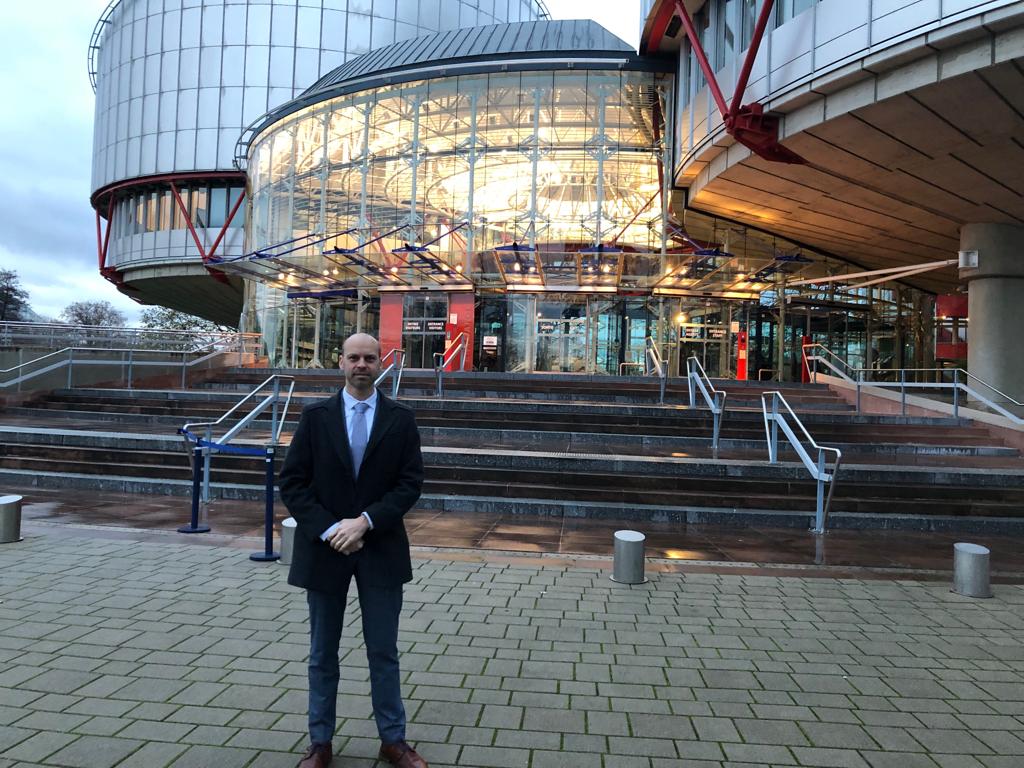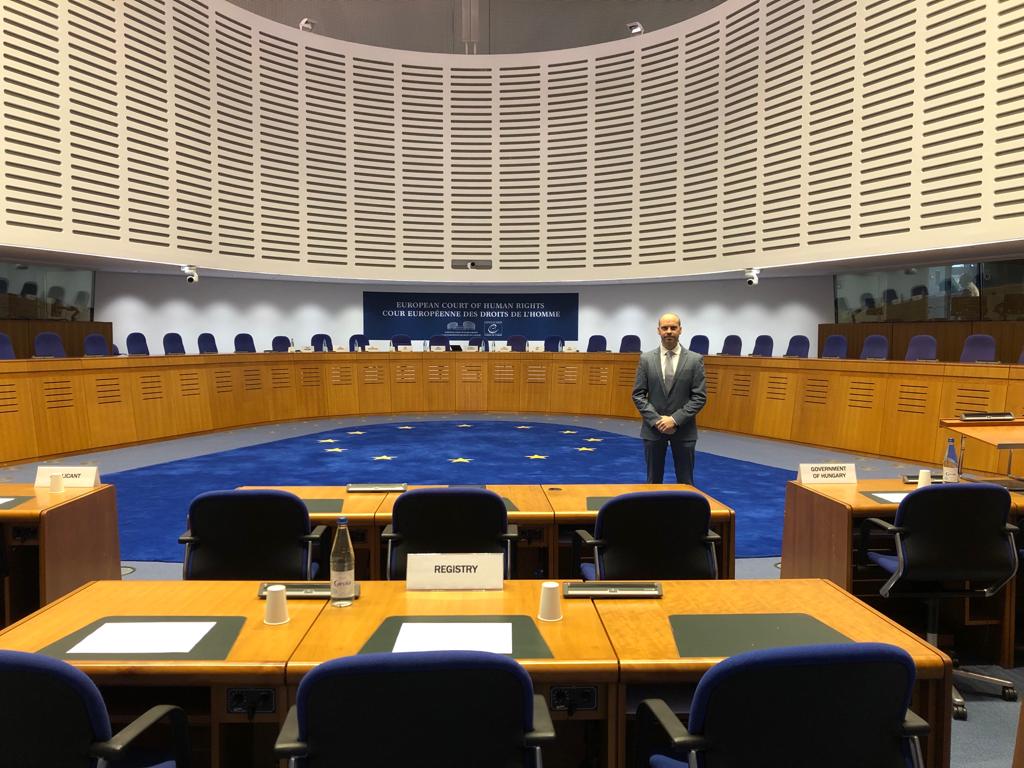Nobody should be offered death as the solution to suffering

In 2002, Belgium and the Netherlands became the first countries to legalize euthanasia. Since then, other countries have followed suit, and more countries are considering it.
Whether called “euthanasia”, “assisted suicide”, “medical aid in dying”, or “MAID”, the act involves a medical professional intentionally and prematurely ending a patient’s life.
At the outset, legislators frequently stress that euthanasia should be seen as a last resort, intended to be a compassionate approach to end a person’s suffering.
However, the experience of countries that have legalized euthanasia shows that more and more people seem to be requesting to die than anyone imagined or expected.
This is often because many people lack the social, economic, psychological, and palliative care support they need to live.
In 2016, Canada legalized euthanasia nationwide and has since become the fastest-growing euthanasia regime in the world, posing a somber warning to the rest of the world.
Rising healthcare and social security costs, the widespread reality of cognitive and mental health challenges, and conceits about autonomy and control are just some of the factors that will make euthanasia one of the most dramatic life issues of the 21st century.
Like our other Generational Wins—our core priorities—preventing euthanasia is not only a legal battle but also a cultural one. Advocates like Amanda Achtman in Canada are focused on raising awareness about euthanasia in the public square from a cultural standpoint through her Dying to Meet You project.
How euthanasia gains popularity
Across jurisdictions, public opinion about euthanasia has been driven by court decisions, political campaigns, lobby groups, and media.
When a doctor in the Netherlands euthanized her mother in the 1970s, the physician was treated leniently and given a weeklong probation rather than a long prison sentence. This sparked the erosion of norms surrounding a doctor’s responsibility to do no harm, even upon the patient’s request.
In Belgium, the euthanasia law was ushered in following the political victory of a left-wing coalition in the 1999 federal election that defeated the Christian Democrats.
In Canada, the lobby group Dying with Dignity has campaigned for more than 40 years to promote and expand legal euthanasia. Exerting considerable pressure, this organization has lobbied politicians, mounted legal challenges, and run marketing campaigns to bolster public support for “MAiD”.
Proponents of euthanasia will usually highlight the stories of individuals who are suffering profoundly and who seem to be making the request to die with full consent and even with the support of their family and friends. Similarly, such stories have become the basis for influential movies and even advertisements.
Since all human beings suffer, the prospect of avoiding or eliminating it is a temptation. Without question, a suffering or vulnerable person summons relief and help; killing the person is never the appropriate way to end his or her suffering.
Once euthanasia is legalized, it will not be limited
When the Canadian government legalized euthanasia, they enacted certain so-called “safeguards”. At first, the patient’s death needed to be deemed “reasonably foreseeable.” Only adults capable of consenting could receive euthanasia. They had to make their request in writing before two witnesses and undergo a mandatory 10-day reflection.
Not even five years later, the government began loosening the requirements and expanding euthanasia to broader demographics. This is because if euthanasia is seen to be a reasonable means of ending suffering, then there is no serious basis on which a person should be excluded from having the option.
On the grounds of equality, euthanasia was expanded to persons suffering but not imminently dying, to persons with disabilities and various neurological conditions, and to others. Unfortunately, this has led to a tremendous devaluing of life within the public healthcare system.
A man with disabilities says he’s been offered euthanasia “multiple times.” A woman with disabilities says a nurse accused her of being selfish for not considering euthanasia. One woman says she was offered MAiD instead of cancer treatment. A mother says her 23-year-old son, who has diabetes and partial vision loss, was scheduled to die by MAiD until she intercepted the process and went to the media.
Legal euthanasia is destroying the doctor-patient relationship and eroding trust between healthcare professionals and families. Prematurely ending a patient’s life through killing is completely different than helping a person to live well until their natural death.
Tackling euthanasia and assisted suicide as a new threat to life
Some people do not have strong opinions about euthanasia because they figure that it is a matter of individual freedom and personal decision. That is what Tom Mortier thought until he received the shocking call that his mother had been euthanized. His mother had struggled with depression but was otherwise physically healthy. Her psychiatrist did not think she satisfied the legal requirements for euthanasia under Belgian law. But Tom’s mother was diagnosed with “incurable depression” and then euthanized by an oncologist with no psychiatric expertise.
Robert Clarke, the Deputy Director of ADF International, represented Tom Mortier before the Court of European Human Rights. In October 2022, the Court ruled that Belgium violated the right to life of Tom Mortier’s mother.
ADF International intervened in another recent euthanasia case. In Hungary, a man suffering from ALS challenged his country’s ban on assisted suicide. ADF International argued in favour of Hungary’s existing stance and defended the country’s obligation to protect the right to life because there is no “right to die.” In June 2024, the European Court of Human Rights ruled in favour of Hungary’s right to prohibit assisted suicide to protect life.
While winning legal cases is important, it’s also important to win in the court of public opinion.
Canada and beyond: Dying to Meet You
A glimmer of hope is Canadian Amanda Achtman, and her mission is to prevent euthanasia and encourage hope throughout her home country and beyond. She founded a project called ‘Dying To Meet You’ through which she engages people in conversations on suffering, death, meaning, and hope. A key feature of her advocacy involves giving a platform through short films to those whose voices have been sorely lacking from the euthanasia debates. In one short film, she interviews Christine Nagel, an 88-year-old woman who decided to get a tattoo that says, “Don’t Euthanize Me.”
In another, Achtman interviewed Eulalia Running Rabbit, an Indigenous Canadian woman who says, “I don’t think it’s right for the government to push euthanasia on the Nations. We really believe the Creator is the one who’s going to take us back.” In another, she interviewed Roger Foley, a Canadian man with disabilities who says he’s been offered euthanasia “multiple times” as he fights for the support he needs to live.
In addition to writing, speaking, and appearing on podcasts and in documentaries about euthanasia, Achtman also organizes events to engage diverse faith and culture communities in end-of-life conversations. For example, she recently organized an event at Adath Israel Congregation in Toronto featuring Rabbi Dr. David Novak, a renowned Jewish thinker who wrote his dissertation on suicide.
During his presentation, Dr. Novak stated, “Nobody really lives unless they’re convinced that somebody else wants them to live. […] And this is an indictment of our much-praised Canadian health service: that it is now recommended to people that they would be better off dead than alive.”
Hope for a wounded world
Achtman is committed to advancing a positive and proactive alternative vision to a euthanasia society because, as she puts it, “As long as euthanasia is legal in Canada, my generation cannot grow up properly. Our growth and development are stunted when we lack opportunities to be called out of ourselves.”
To learn more about her and Dying to Meet You, visit the project online.
Conclusion: Every single person has dignity
Euthanasia is one symptom of our wounded world. The person who asks for euthanasia is really wondering whether someone will love them enough to push back.
As euthanasia becomes more of a risk across Europe and throughout the West, it is crucial that we redouble our efforts to protect life. Whether at the beginning, end, or in between, every life has a purpose, and every life is worth defending.






